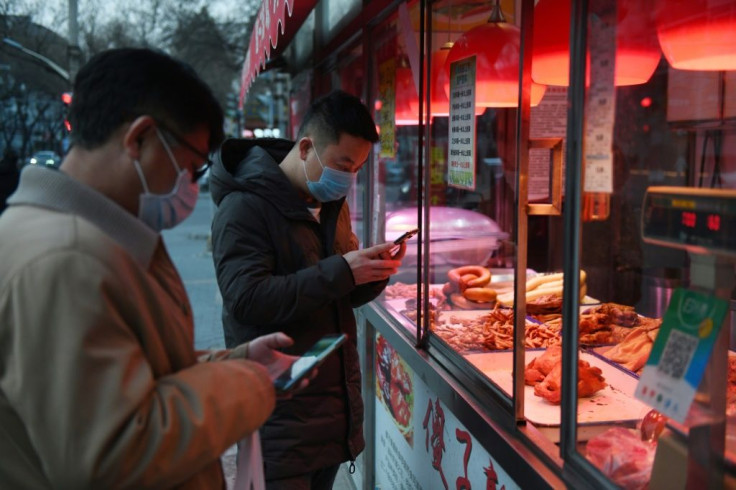Coronavirus Update: What Can Companies Do To Protect Supply Chains Collapse If COVID-19 Isn't Stopped?

KEY POINTS
- The latest figures from WHO show the number of coronavirus cases in China approaching 80,000, keeping factories closed to stem spread of the malady
- Chinese factories produce components for everything from medicines to autos to electronics
- The situation points up the vulnerabilities to just-in-time supply chains
Coronavirus has thrown a wrench into the global supply chain putting just-in-time manufacturing operations in danger of collapse as the supply of components from China dries up.
With China approaching 78,000 cases of COVID-19 paralyzing Chinese cities as the government attempts to contain the virus, companies are considering alternatives from other foreign sources to domestic production. Chinese factories produce components for everything from medicines to car parts to electronics, with most assembly plants stocking little if any inventory. At least 48 cities in four Chinese provinces were on lockdown.
How soon the system could melt down is unclear.
Apple already has warned it would not meet quarterly estimates because of the impact the virus has had on demand in China and could face delays in the next round of iPhone introductions if the outbreak fails to ease within a month.
Oxford Economics warned the virus could cost the global economy $1.1 trillion in lost income.
Marvin Loh, senior global macro strategist at State Street Global Markets, said the timing of the outbreak could have been worse. Given that it occurred ahead of the planned Lunar New Year slowdown, companies generally stockpiled a month’s worth of components rather than the usual one to two weeks. But at this point, “that excess stock has essentially been depleted and we are starting to see an impact from China’s inability to restart its factories spill over into the global manufacturing landscape,” Loh said.
Ironically, trade tensions already had prompted companies to start looking outside China for supplies, so they’re not starting from square one, he said.
Sarah Bauder, senior market analyst at SophisticatedInvestor.com, said the current situation “will certainly reinforce the argument for more domestic production … . It has become glaringly apparent just how flawed the present global supply chain paradigm has become. In an effort to lower costs, numerous multinationals have placed far too much reliance on Chinese factories to supply their goods, and the breadth of the repercussions will be vast and indiscriminate on the global economy.”
Though U.S. manufacturers so far have been only minimally impacted, that likely won’t last, said Jack McIntyre, fixed income portfolio manager at Brandywine Global Investment Management.
“There seems to be enough inventory in the global supply chain to cover this disruption period. That being said, this is about a one-month time period of global supply chain disruptions. If it is a more bearish outcome, meaning multiple months in which China is offline, supply chain disruptions will dig deeper into global economic activity,” McIntyre said.
“The U.S. and U.S. companies won’t be immune to the supply shock from supply chain disruptions and the demand shock given the hit to exports, and the continued curtailing of inbound tourism – international tourists spend roughly $200 billion a year in the US. China's [gross domestic product] will be hit hard in Q1. If it is short lived, a bad Q1 could drive a strong Q2.”
Sharon Lim, CEO of Browzwear, said the fashion industry is particularly vulnerable.
“The industry's shift to a just-in-time manufacturing model, which aims to address fashion’s overproduction problem and wasted inventory, has facilitated a more financially sustainable sourcing strategy. However, with many of China’s production hubs and factories under quarantine, a tremendous vulnerability of this model has been exposed,” she said.
“By waiting for definite demand, the industry is experiencing significant understock issues due to the disruption in the supply chain caused by the health crisis. Factor in the reduction of air travel to and from the region cutting off a number of cargo routes, and you have the makings of a logistical nightmare for both designers and manufacturers alike.”
Curtis Ellis, an economic expert and policy director at the pro-Trump America First Policies, said the scope and severity of the coronavirus outbreak can be blamed squarely on the Chinese Communist Party, which tried to downplay and cover up the outbreak.
“Some call coronavirus outbreak a black swan event. But that is wrong species of fowl,” he said. “What we see now are chickens coming home to roost. Everyone knows authoritarian governments are brittle, unreliable and the breakdown we see now was entirely predictable.”
© Copyright IBTimes 2025. All rights reserved.






















